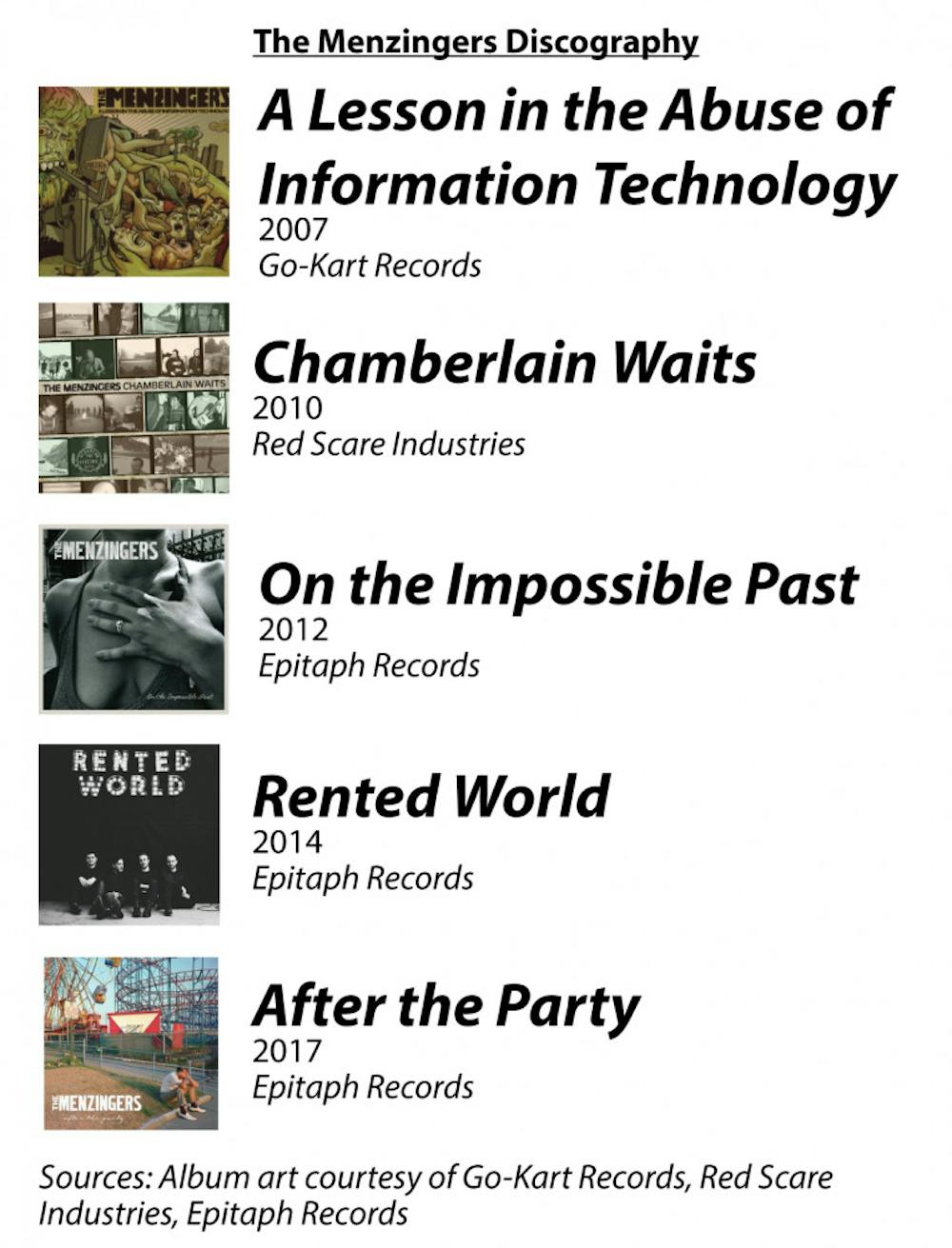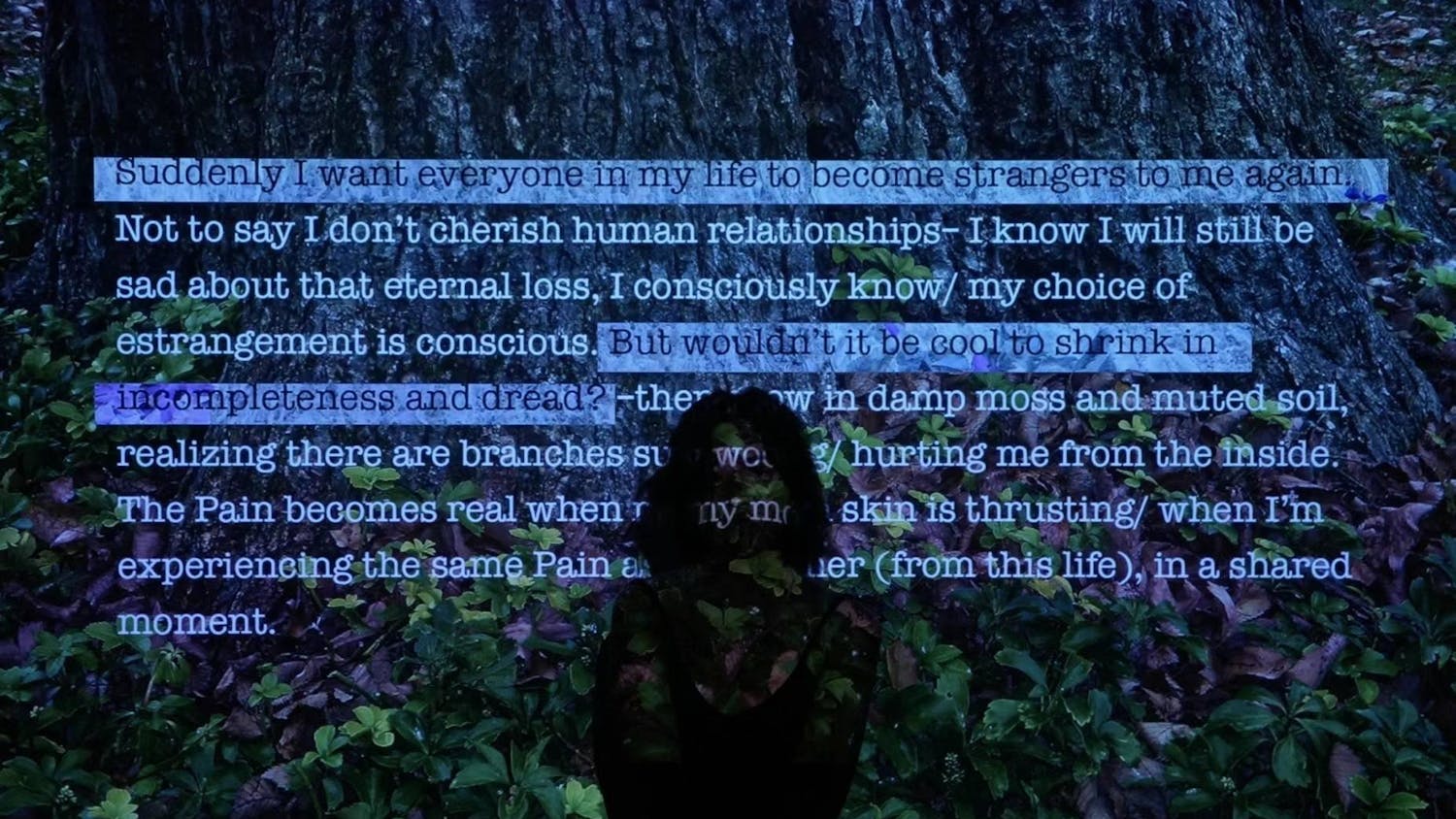Scranton, Pennsylvania isn’t known for terribly much. Some might recognize it as the setting of NBC’s “The Office,” a show that humorously depicts the grind of working at a paper-making company — a droll job that epitomizes so much of Scranton’s mundanity. Once home to a prosperous coal industry, the city has since transformed into a paradigm of the commercially-depressed Rust Belt. The inhabitants there remain drained by the city’s dire economic straits.
Yet Scranton has fulfilled its purpose by serving as the inspiration for The Menzingers’ newest LP “After The Party.” Catered to those who feel marginalized, disenfranchised, frustrated and defeated, the Scranton-based punk band speaks to a certain brand of individual. Past albums, including 2012’s “On The Impossible Past” and 2014’s “Rented World,” detail the monotony of dead-end food service jobs, the futility of gas station lotto tickets and other generally bleak circumstances.
Similar to the band itself and for the hopelessly trapped characters whose storylines are recounted within these songs, punk is a platform for expressing discontent — a veritable religion that binds and affirms society’s oppressed actors. It is a source of refuge for the blue-collar blues that is maybe eclipsed only by alcohol-soaked comfort. Holding dive bars and house parties as the wistful apotheosis of the Pabst Blue Ribbon-ridden twenty-something, the band speaks to a drunken escapism that would put Hemingway to shame.
But in “After The Party,” The Menzingers’ fifth studio album, the hangover has at least partially lifted. Just like the rays of the sun after a particularly heavy night of drinking, the album hits with painful clarity. Previous albums’ whiskey-fueled anthems have evolved into heart-on-the-sleeve ruminations in a thematic maturation that mirrors the band members’ coming-of-age. “Where are we going to go now that our twenties are over?” ponders Greg Barnett, the band’s frontman, on opening track “Tellin’ Lies.” The song is torn between ambivalence and longing for the past, reflecting a complicated nostalgia effortlessly highlighted by Barnett’s uncompromising sincerity. Full of references to a youth too quickly passed by, the lyrics carry both a wistful ephemerality and a sense of uncertainty. With a definite duality, the track’s catchy, driving melody belies and fails to capture the speaker’s serious fear of being perceived as a burn-out by society. This sharp contrast between thematic content and melodic choice captures Barnett’s dismay as he grows older.
The creeping “Black Mass” and the eponymous “After The Party” are also standouts that extend the regret-tinged, aged introspection to subjects like tired relationships and alternative culture. “After the Party” references “your silhouette in high top sneakers /And hardcore from laptop speakers,” singularly conveying the quintessential punk scene. “Lookers,” however, remains the LP’s most exceptional cut. With a speaker “lost in a picture frame” and shrouded by “a cloud full of nicotine,” the track is the apex of the album’s confessional nostalgia. Its position as the lead single of the album is no mistake; the lyrical wisdom is complemented by perhaps the band’s most infectious chorus to date. “Lookers,” arresting and thoughtful, embodies everything moving about punk, while “Charlie’s Army” stands as the album’s weakest link. Lyrically vapid and musically uninteresting, the track regresses to puerile punk that even blink-182 wouldn’t be caught dead making.
Nostalgia remains an exercise in futility. It’s fitting that most of the memories explored on “After The Party” involve drinking. Like alcohol, nostalgia easily lends itself to dangerous, fleeting self-indulgence. But on the LP, The Menzingers manage to avoid devolving into more maudlin aspects. Rather, the punk act uses nostalgia to constructively reflect and look toward the past not dreamily, but warily. The album ultimately affirms the notion that being too embroiled in the past precludes progress, destining one for life as another Scranton townie burn-out. Luckily, that’s a future that the band, with their strongest album to date, almost certainly will not face.





